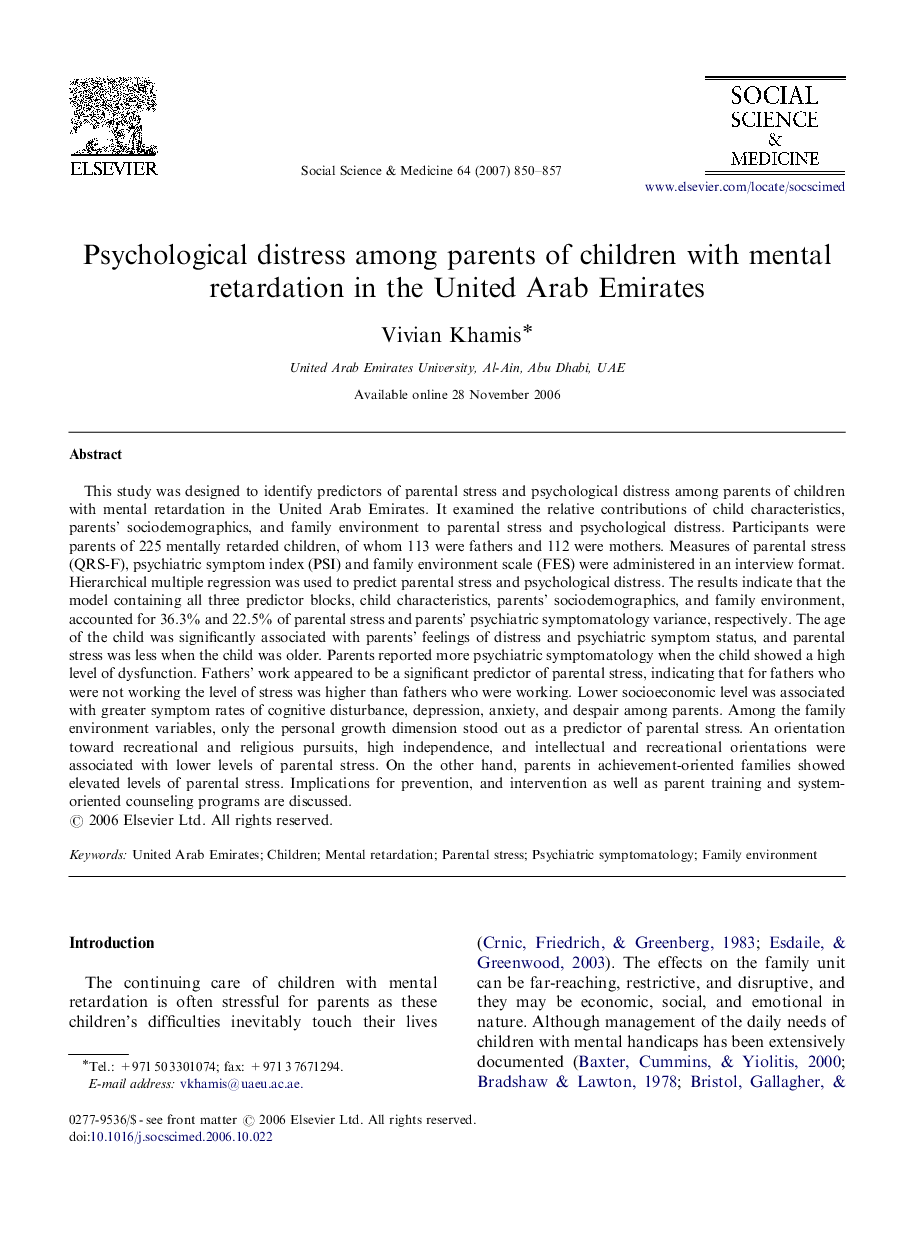| کد مقاله | کد نشریه | سال انتشار | مقاله انگلیسی | نسخه تمام متن |
|---|---|---|---|---|
| 954003 | 927620 | 2007 | 8 صفحه PDF | دانلود رایگان |

This study was designed to identify predictors of parental stress and psychological distress among parents of children with mental retardation in the United Arab Emirates. It examined the relative contributions of child characteristics, parents’ sociodemographics, and family environment to parental stress and psychological distress. Participants were parents of 225 mentally retarded children, of whom 113 were fathers and 112 were mothers. Measures of parental stress (QRS-F), psychiatric symptom index (PSI) and family environment scale (FES) were administered in an interview format. Hierarchical multiple regression was used to predict parental stress and psychological distress. The results indicate that the model containing all three predictor blocks, child characteristics, parents’ sociodemographics, and family environment, accounted for 36.3% and 22.5% of parental stress and parents’ psychiatric symptomatology variance, respectively. The age of the child was significantly associated with parents’ feelings of distress and psychiatric symptom status, and parental stress was less when the child was older. Parents reported more psychiatric symptomatology when the child showed a high level of dysfunction. Fathers’ work appeared to be a significant predictor of parental stress, indicating that for fathers who were not working the level of stress was higher than fathers who were working. Lower socioeconomic level was associated with greater symptom rates of cognitive disturbance, depression, anxiety, and despair among parents. Among the family environment variables, only the personal growth dimension stood out as a predictor of parental stress. An orientation toward recreational and religious pursuits, high independence, and intellectual and recreational orientations were associated with lower levels of parental stress. On the other hand, parents in achievement-oriented families showed elevated levels of parental stress. Implications for prevention, and intervention as well as parent training and system-oriented counseling programs are discussed.
Journal: Social Science & Medicine - Volume 64, Issue 4, February 2007, Pages 850–857